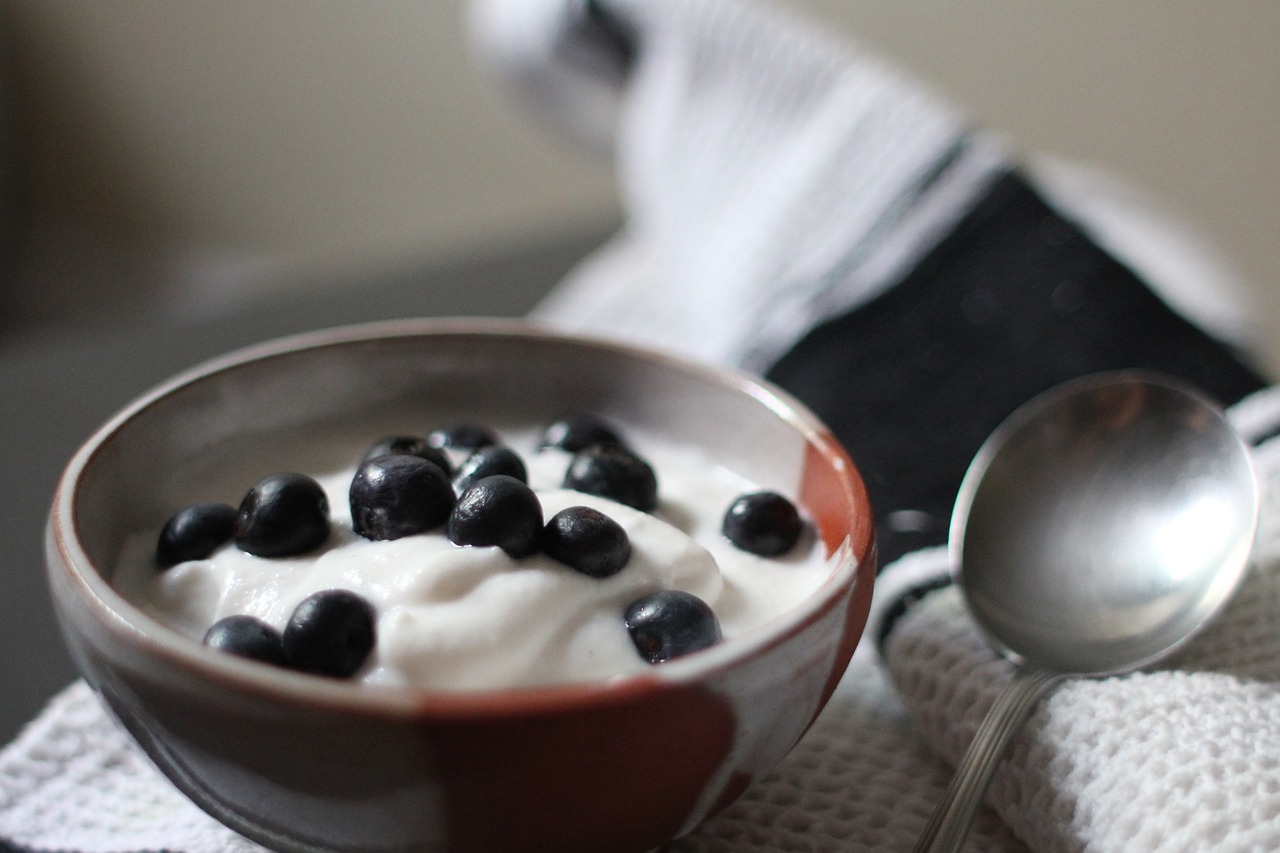If you have begun to drink milk kefir for its many health benefits, it can be disheartening to experience negative symptoms as a result. Why would something that’s supposed to be so good for you have such nasty side effects?
The answer most likely has to do with how good your gut health was before you began drinking kefir, and how much healing you still have left to do.
First, to understand how milk kefir affects the body we need to understand what milk kefir is and what it does within our digestive system.
What is Milk Kefir?
Milk kefir is a fermented milk drink that is very similar to yogurt. It is cultured using kefir grains, which are essentially a mixture of bacteria and yeast in a cluster of proteins, lipids, and sugars. These “grains” cluster together in what looks like a small cauliflower.
Kefir is made by adding the grains to milk (either cow, goat, or sheep milk) and allowing it to sit in a jar or container for about 1-3 days. This allows the beneficial bacteria in the kefir grains to “take over” and culture the milk. The result is a thick liquid similar to the consistency of yogurt.
Like yogurt, milk kefir is full of good bacteria called probiotics, except that milk kefir contains many more strains of good bacteria than yogurt, making milk kefir far superior to yogurt in its ability to populate our digestive systems with beneficial organisms.
Benefits of Probiotics
These probiotic organisms are important for many reasons. They improve your body’s ability to break down foods and utilize nutrients, as well as boost your immune system.
They also…
- Play an important role in normal growth and development
- Fight cancerous cells
- Balance the body’s PH levels
- Protect from allergies and autoimmune disorders
- Balance stomach acid
Can Milk Kefir Cause Heartburn?
It can be confusing to understand why milk kefir sometimes causes heartburn even with its wide range of health benefits. But once we look at the process of how kefir repopulates the gut with healthy bacteria, it’s easier to understand why it happens and how to prevent it.
Think of your stomach as sort of a science experiment in healthy bacteria against bad bacteria. This is known as your gut flora. Ideally, the gut of a healthy person is full of good bacteria and very little bad bacteria. However, the reality is that most of us start our journey to health with very bad gut flora.
What Influences Your Gut Flora
The balance of good/bad bacteria in your gut is dependent upon a number of factors, including your typical diet, your lifestyle, and prior use of antibiotics.
Children inherit much of their gut flora (good or bad bacteria) from their mother while she was pregnant.
A mother with very good gut flora will typically pass it on to her children, while a mother with bad gut flora is less likely to pass on enough good bacteria to her child. Whether or not the child is breastfed will also play a role in the quality of gut flora.
Obviously, what we want is for our digestive system to be populated by mostly good bacteria. We can do this by eating plenty of probiotic foods, promoting “detox” that allows our bodies to rid themselves of bad organisms, and limiting our consumption of foods that allow bad organisms to thrive (such as too much sugar).
Why Milk Kefir Causes Heartburn
When the consumption of milk kefir causes heartburn, it is most likely a result of introducing good bacteria to an environment where bad bacteria have taken over.
The good bacteria and the bad bacteria cannot live in harmony, and so they begin to wage war within your digestive system. The probiotics from the milk kefir seek to evict the bad bacteria from your gut, which can result in a number of unpleasant symptoms, including heartburn and other Gastrointestinal (GI) problems.
This period of adjustment in your digestive system is called “gut flora repopulation” or “gut flora repair”, and it can take anywhere from days to months depending on the current state of your digestive system. It can also cause something known as “die off” in which your body reacts to trying to rid itself of bad bacteria.
Common Symptoms During Gut Flora Repopulation:
- GI complaints such as heartburn, indigestion, diarrhea, constipation, etc.
- Headaches and muscle aches
- Excess mucous production
- Skin Rashes
- Brain Fog
Because kefir is so much stronger than yogurt, it can cause a much stronger reaction if your stomach is not used to the strains of good bacteria that live in milk kefir.
How to Begin Drinking Milk Kefir
Just because you get heartburn when you drink milk kefir does not mean you should stop drinking it. In fact, it probably means that your body needs good bacteria in milk kefir all the more.
What you will need to do is ease into drinking milk kefir slowly. Start off with 1-2 Tbsp of milk kefir a day and slowly work yourself up as you begin to tolerate it better.
If you are having a lot of heartburn, take a break for 2-3 days until your heartburn has subsided, then try again.
The heartburn could also be related to dairy intolerance, but I would only suspect this if you don’t otherwise consume much dairy.
Want to learn how to cure your heartburn or acid reflux through nutrition? Check out the 30-Day Heartburn Solution by Craig Fear.



Thanks for your post! I’ve been drinking kefir from raw milk for about 3 weeks. I had some bad bacteria stuck in my colon and I believe drinking the kefir in increasing amounts cleared it out. It’s gone per my Iridologist.
However, the next week I noticed I was becoming constipated and couldn’t understand why. Its TERRIBLE. Most sites on the web didn’t have a good perspective so I appreciate your post. I don’t want to stop taking the Kefir, I know it important.
I had to take an extended round of antibiotics about 4 years ago, I’m learning what damage
that can do to the gut. So thanks to you I’ll just reduce the dosage while building up my good gut flora!
Hello Jen, I’m so glad the article was helpful to you. You could also try epsom salt baths to ease the constipation. Check with your doctor if you are unsure, of course. If you remember, please come back and let me know how a lower dose has helped you!
Hi, I’m back. The lower dose worked immediately :o). I reduced my intake to 2 TBS the next morning and by that evening things had started moving again without the need for prune juice.
I was so glad to find the cause of my discomfort! Also, I’m glad to know that the good bacteria is fighting to repopulate my gut. Thanks again.
Hi, I have had gut problems all my life. I took Tetracyclin for 15 years to keep from getting pimples. From age 15 to 30. It destroys your gut and your teeth. I have worked my way back but have started to make kefir and I read somewhere that no matter what your history kefir will heal the gut but it may take awhile. Its been about 3 months and I am starting to have a somewhat normal elimination but I am having some different symptoms, light color stools and very loose. It seems to me it is having trouble populating. Before I started the kefir I was breaking out with ecxema, in patches and hives. Since I have been doing the kefir it is gradually changing but I feel like a battle is going on. I am making coconut milk kefir and it is very good and I switch to organic milk to keep the grains strong. There is nothing I want more than to just be healthy and have a healthy gut. Thank you for your wonderful site. Thank you.
Hello Sharon! I don’t know if you have read my article on healing your gut after antibiotics. It is here: http://naturalfamilytoday.com/nutrition/5-ways-to-heal-your-gut-after-antibiotics/
First, I would talk to your doctor if you notice anything concerning. Also, if you haven’t heard of the GAPS healing diet, I would recommend you research that as well as it can help if your body needs more healing. Your body may need a bit more help restoring your digestive system. I hope this all helps you and wish you well!
Hi Sharon,
I drank lifeway plain kefire and it gives me exactly the same symptom as you do. Mine is more like diarrhea than loose stool. I am always wondering whether our body can tolerate these foreign germs even though they are considered good. I also have pain before each BM after the kefir which also makes me doubt to continue drinking or not. Hopefully more people can share experience on this.
I just started drinking Kefir and am having a horrible reaction of cramping . I called the customer service place for Lifeway and she said she has never heard of the cramping part? I told her I drink 8 ounces of it and she said thats a good amount. Should I stop drinking it? or go to a less amount… the cramps and sweats was like a flu feeling
It could possibly be a reaction to the kefir if you are not used to drinking it. I would start slow. Do you normally eat dairy? Definitely talk to a doctor if the cramping persists, of course.
I just had the same experience. I was up all night with cramping and diarrhea. From what I’ve read it was too big of an initial dose.
When you first start drinking kefir you can have a “die off” period”. This is when the good bacteria in the kefir is actively killing the bad bacteria in your body. It can result in all sorts of symptoms (do a search for “Herxheimer Reaction”).
When first starting kefir it is best to start off slow and let your body adjust.
My 2 year old is addicted to kefir- he will drink an entire Lifeway container in one day if we allow him, to have as much as he wants. (He drinks the organic strawberry flavor) I try to limit him to 2 cups per day, but sometimes he gets 3 cups.
How much do you think is too much?
He is generally very healthy but had a virus 2 weeks ago & has had some residual vomiting (no other symptoms) just comes out of the blue every few days. I attributed it to the virus but now I’m afraid it may be too much kefir.
Would love your opinion.
Thanks!
Andrea, I don’t think that 2 cups a day is too much, but it may be causing some issues if his gut is a little off balance from having been sick. Maybe try easing back into it.
Vanessa,
I have been drinking 6-12 oz daily of Lifeway Plain Kefir for quite some time and have never had any problems.
Recently my neighbor gave me some of the kefir she makes at home and I had terrible heartburn almost immediately after drinking only about 1/4 cup. Could this really be from gut flora repair?
Thanks,
Sherri
Sherri, absolutely it could be from gut repair. It’s my experience that homemade kefir is much stronger than store bought. Start slow and work your way up. Try starting with a teaspoon. As soon as you can easily tolerate it, move up to 2 teaspoons and so on. Hope that helps!
Hi Vanessa
I have been diagnosed with Gastro Paresis and am on medication (Motilium) for this as well as (Normacol & Bisalax) medications to eleviate chronic constipation. I don’t like being on medication at all so recently started making my own kefir hoping it would be a miracle cure. Have been drinking about 300ml a day now for a week and have been experiencing foul-smelling flatulence & constipation. Yesterday seemed to be worsening with uneasy stomach and distension as well. At 4.10am this morning I was awakened by severe discomfort from upper abdomen & back pain which came in waves of severity for about an hour and thankfully has now subsided. I’m assuming from what I have read now that I have over indulged on the kefir too much, too soon. Do you think I should just re-adjust my intake and start again very small or with my condition is kefir not for me?
I have come across an unexpected benefit of milk kefir. Kefir farts are like the drink itself very tart, they are wonderful for crop dusting the office cubicles
Hi Vanessa,
I wish you and your family are all well.
My son who is 7 yrs old is having mucus especially in the night and in the morning. He loves kefir, he takes between 8-12 ounces of raw goat milk kefir daily, could his mucus be as a result of kefir, knowing that he had mucus even before taking the kefir.
Thanks in advance for your reply.
Regards,
sameh
I started consuming kefir for 2 months before I developed problems. The symptoms started slow with stomach pain, then becoming acute within 3 weeks from the onset of the original pain. I asked many doctors and wasn’t finding an answer. The symptoms were consistent with gall stones or pancreatitis. An ultrasound and upper endoscopy revealed the only problem was an irritation to the lining of my stomach and an increased production of stomach acid.
I now believe the stomach pain stemmed from a combination of two things, 1) Benadryl, that I had used for an extended period of time and 2) consuming kefir. I have had two people in the medical field tell me a potential side effect of kefir is that it relaxes the muscle closing the stomach off from the esophagus. As that muscle relaxes it allows stomach acid to travel up the esophagus more easily. I am finally healing, slowly, now that I have removed those two items from my diet. Just pulling one out or the other didn’t not have the same effect as eliminating both sources to the problem.
I have now suffered for 4 months as I have tried to decipher the root of the acid reflux.
I hope my experience helps others identify a stomach problem that may be caused by kefir. It was particularly hard to identify because the symptom development was gradual.
I believe after I am well I could tolerate an occasional kefir consumption. Best of luck!